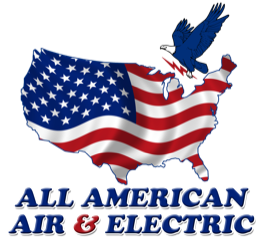Back in 1902, Willis Haviland Carrier had a problem. New York City’s overwhelming humidity was ruining a publishing company’s paper, and Willis was the electrical engineer in charge of making sure that the problem got fixed.
His solution became the precursor for the modern HVAC system.
Willis blew the air inside the building across chilled pipes, which reduced the heat and prevented the air from carrying moisture. The effect was immediate: the paper stopped soaking up excess moisture from the air, the publishing company’s profits stabilized, and soon, every business in America was installing Willis’ ingenious system. The air conditioner was born.
The Modern AC
Today, you’d be hard pressed to find a home or business that doesn’t take advantage of Willis’ handy device. After all, air conditioners make long, hot summer months bearable and even save us money.
But with so many modern-day conveniences, many of us don’t really know how an air conditioner works or how to extend its lifetime. Below, we answer your frequently asked questions about HVAC systems.
How Does an Air Conditioner Work?
An air conditioner uses a very simple scientific principle: phase conversion. When a liquid becomes a gas, it absorbs heat. Air conditioners, like refrigerators, convert chemicals from liquids to gasses again and again so that the transfer creates cool air. The process occurs in a closed coil, so the air is trapped and can be pushed out into your home or office.
The chemicals your air conditioner manipulates are called refrigerants. These compounds change state (from liquid to gas to liquid) at low temperatures, which makes them energy-efficient and cheap. The refrigerants are in cold tubes called evaporator coils-the descendants of Willis’ original cool pipes.
Your air conditioner uses phase conversion to its advantage. When fans move warm interior air across the coils, the refrigerant inside the tube absorbs the heat and changes the chemical from a liquid to a gas.
The gas then absorbs the heat. After a while, the gas will begin to heat up the coils, so a compressor has to put pressure on the gas to turn the gas back into a liquid. But there’s a problem: pressure equals heat. So a second set of fans and coils, called condenser coils, push the extra heat through a vent and outside. The gas finally turns back into a cool liquid.
There are many different kinds of HVAC systems, including window units, split system air conditioners, chilled-water ACs, and cooling-tower units. These systems all use the phase conversion to give your space cool air, but their design varies. To ensure that your home or office has the right kind of AC unit, contact your HVAC specialist.
Should I Clean My Air Conditioner?
A dirty AC unit will clog, which means your compressor will have to work harder and will wear out more quickly. Additionally, allergens, mold spores, dust, and chemicals trapped in a dirty air conditioner significantly affect your family’s health. Air quality makes a major difference in energy savings as well-the U.S. Department of Energy has reported that HVAC systems can waste 40% of their power because of dirt and dust.
To ensure that your HVAC functions at optimum efficiency, you may need to clean it occasionally. You can easily clean some parts of your unit yourself, but others need to be handled by a professional.
You should be able to clean these parts with little difficulty:
- The condenser (turn off, clean, and restart)
- The indoor unit
- The air filters
You should contact a specialist to clean these parts:
- The coolant
- The duct systems
- The coils
Contact your HVAC specialists with questions about how to clean and maintain your unit. Since your air conditioner is quite fragile in some ways, consult a professional if you feel unsure of how to proceed.
How Can I Save Money on My Electricity Bill?
Many homeowners don’t realize that air conditioning contributes to nearly half the cost of their utility bill. In addition, an AC unit that is not properly maintained can create an added expense when it breaks down and needs repair.
Lower your per-month AC costs by allowing the temperature in your home to raise a bit while you are sleeping or away from the house. You can save up to 15%on your air conditioning bills when you raise the temperature on your thermostat slightly when you walk out the door.
Allow the air to circulate through your home, but do not open windows or doors. Circulation is key to a functioning AC. You don’t need to go out and buy fancy fans-just keep your doors between rooms open.
Trust a professional. HVAC specialists know what kind of system your home needs to be properly cooled without heating up your bank account, and they know how to keep your AC functioning. Contact your HVAC specialist today for more maintenance check-up and tips on how to lower your electricity bill.

